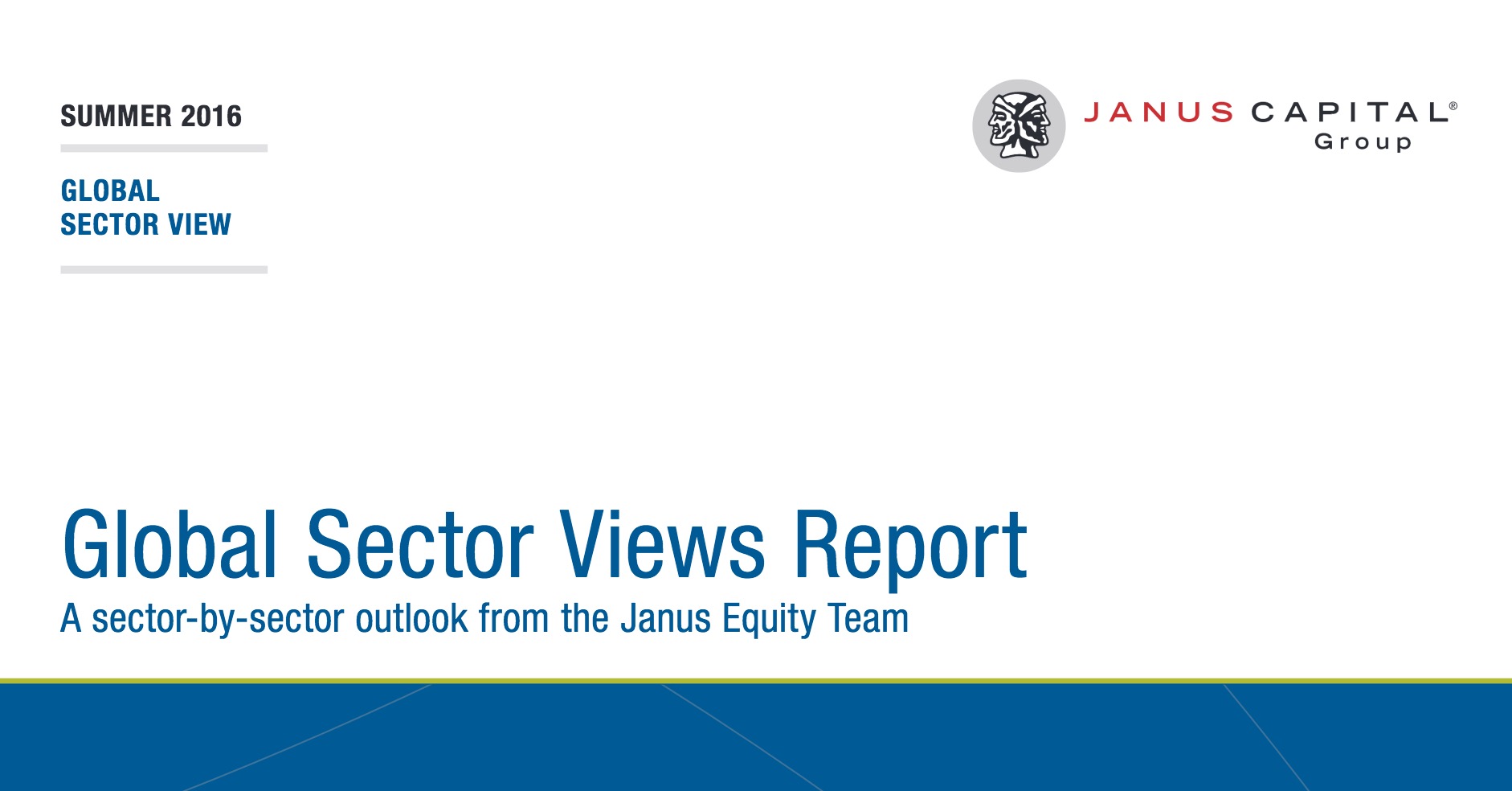What CEOs Said Last Week: "Rebounding from Malaise"
by Scott Krisiloff, CIO, Avondale Asset Management
Each week we read dozens of transcripts from earnings calls and presentations as part of our investment process. Below is a weekly post which contains some of the most important quotes about the economy and industry trends from those transcripts. Click here to receive these posts weekly via email.
This Week’s Post: Rebounding from Malaise
The US has been in an economic malaise for almost two years, but markets seem to want to believe that the economy is exiting its doldrums. We’ll get a much better sense as to whether this is a false start during earnings season. If the economy is revving back up then it’s hard to see how the Fed will keep money easy, and investors should keep an eye out for signs of inflation.
Due to a quirk in scheduling, earnings season started with a trickle this week. A lot of good content came out of Fortune’s “Tech Brainstorm” conference though. Next week the deluge will begin.
The Macro Outlook:
There has been a malaise in the US
“I think…there is I call it a malaise in the U.S., is probably the best way to describe it. And I think there was an interesting report out yesterday that I think 75% of people 18 to 30 believe that the U.S. is either falling behind or failing as a nation, according to a GenForward Survey. So that’s not particularly good news from just what are people thinking.” —Yum! CEO Greg Creed (Taco Bell/KFC)
While conditions have been challenging, they could be getting better though
“challenging industry conditions in the U.S. contributed to soft sales results…we said we’re seeing some improvement as we start the third quarter. Taco Bell which obviously was negative in Q2 has turned positive in Q3 through the first five or six weeks of the quarter…as we all know in the U.S., the market is a little soft, but I think that we see some momentum in sales.” —Yum! CEO Greg Creed (Taco Bell/KFC)
Fastenal saw weakness due to plant shutdowns, but many of those plants are up and running again
“On the construction front we saw slowdown in our energy customers in both May and June…I would not look at that as a temporary one. On the temporary front we saw quite a few customers that were shutdown…some of the shutdowns which were extended in June they are back in full force now.”–Fastenal CEO Daniel Florness (Industrial Distributor)
Railroads continue to face a difficult freight environment, but much of the volume decline is in coal
“Revenue declined 12% in the quarter…9% volume decline, which included a 34% decline in coal…it’s clear this continues to be a challenging freight environment with plenty of macroeconomic headwinds. ” —CSX CEO Michael Ward (Railroads)
Meanwhile, the consumer is still spending
“we obviously have own spend data to look at and it continues, the card spend is up 8% year-on-year, energy continues to be a tailwind for consumers, the labor market continues to be solid and improving and sentiment is still good, housing still improving. So I mean, really just looking at the same things you are looking at and we obviously have a slightly different lens to it, but all other things equal, consumers are in very good shape and demand is there for the products.” —JP Morgan CFO Marianne Lake (Bank)
Loan demand is robust
“Our outlook for loan growth for the range of this year is to be at the higher end of our range. We said 10% to 15% core loan growth and at this point, demand still seems robust.” —JP Morgan CFO Marianne Lake (Bank)
VC and PE activity has bounced back
“The VC and private equity activity level is steady now. It bottomed in the first quarter, I would say and has actually picked up a bit and that’s been helped by a decline in valuations and thus increased opportunities, particularly in VC area.” —First Republic Bank CEO James Herbert (Regional Bank)
Comps will ease in the second half of the year
“There are comps that begin to ease as we get into the back half of the year.” —CSX CFO Frank Lonegro (Railroads)
Given this environment, it’s tough to see how the Fed will need to aggressively ease
” I believe the U.S. economy is growing – not as well as we want it to be, but I think we will see a 2% economy this year…So despite all of the headwinds and uncertainties, I don’t see at this time, a Federal Reserve that turns itself into a central bank that has to aggressively ease. And so, it may delay their path towards normalizing of interest rates, but I don’t see any possibility at this moment that they will be forced to going back into an easing mode.” —Blackrock CEO Larry Fink (Asset Management)
If the economy is really revving up, then we’ll have to be on inflation watch
“We have to watch commodity inflation in the back half.” —Yum! CEO of China Micky Pant (Taco Bell/KFC)
We’re now lapping lower fuel costs
“the reality is that the large year-on-year savings driven by lower fuel are now behind us, market prices are essentially flat for the third quarter and look to be higher year-over-year in the fourth quarter for the first time since 2012.” —Delta CEO Ed Bastian (Airline)
International:
Brexit is going to create uncertainty for a while, but hopefully UK leaders are sensible
“So number one, we do think [Brexit] will reduce the GDP of the U.K. and the EU a little bit…Number two, we know that it is going to create uncertainty for an extended time period…We are hoping that political leaders are very sensible…I am not really worried about it. It would be nice if it doesn’t create a huge turmoil. So I am hoping the EU is sensible” —JP Morgan CEO Jamie Dimon (Bank)
It’s difficult to tell whether the vote is having an immediate impact on the British economy
” I think, in terms of us looking at it since Brexit, we’ve not had any clear results. I can’t see particularly any impact. The noise at the end of the quarter in terms of our promotion stats makes it very difficult to assess.” –-Marks and Spencer (British Retail) [Thanks to Stephen Clapham for contributing this quote]
Delta is seeing currency impacts from Brexit. London represents 35% of its European traffic
“The currency certainly has impacted the booking point of sale. And we have seen some strength in the U.S. point of sale to the UK…Likewise, we have seen some reduction in our UK point of sale coming to the U.S…London has – is the biggest market in the UK…As a matter of fact, London represents about 35% of the total business to and from the U.S. between U.S. and Europe.” —Delta CEO Ed Bastian (Airline)
The Chinese consumer appears to be doing ok
“I’m particularly pleased with the continued sales momentum at KFC China which delivered better-than-expected same-store sales growth” —Yum! CEO Greg Creed (Taco Bell/KFC)
“Our second quarter result was helped by an increase in demand from China 4G Plus smartphone ramping and continued 3G to 4G upgrade from emerging markets.” —Taiwan Semiconductor CFO Lora Ho (Semiconductors)
Financials:
Low interest rates are creating major problems for investors
“Our pension clients with 7%-plus return expectations are facing an ever-expanding liability gap. Our insurance clients with significant regulatory constraints cannot make their business models work in a zero yield environment. Sovereign wealth funds have been forced to focus on liquidity and funding needs after years of rapid growth, and individual savers are wrestling with a choice of too much risk versus too little return, as they face the prospects of their own underfunded retirement plans.” —Blackrock CEO Larry Fink (Asset Management)
No one is quite sure what to do
“Clients do not know what to do with their money. They are afraid and they are pulling back, as evidenced by more than $55 trillion in bank deposits sitting in the United States, China, and Japan alone. And even as markets have rallied recently, many clients have missed that upside, and find themselves feeling even further behind.” —Blackrock CEO Larry Fink (Asset Management)
One thing that negative yields tell us is that the world needs innovation
“There’s 10 trillion dollars of money parked in negative yielding government bonds. Which means that people can’t find enough conventional places to deploy capital. If you pick up the newspaper and read the economics section, you read about how horrible this is and how the world is hungry for more economic growth. The optimistic side of this is there’s 10 trillion dollars of money sitting on the sidelines waiting for something productive to be done with it. The world has never been more ripe for a large wave of innovation that would be easy to finance.” –Twitter Celebrity Marc Andreessen (@pmarca)
There’s no deterioration in credit outside of energy
“Although the oil and gas sector remains stressed and reserves will continue to be idiosyncratic, overall trends have been somewhat positive…In addition, outside of energy, we still have not seen contagion or deterioration in our wholesale or consumer credit portfolios.” —JP Morgan CFO Marianne Lake (Bank)
Keep your friends close and your regulators closer
“Since we crossed $10 billion literally the first day of January, we have started our new examination cycle with our regulators…our examination cycle now as a larger bank has become much more sort of continuous with exams really occurring every month on different parts of our company…We are working really hard to make sure we stay ahead of the curve and ahead of expectations. You don’t ever want to fall behind and be trying to catch up to where your regulators think you are.” —Bank of the Ozarks CEO George Gleason (Regional Bank)
Consumer:
Physical stores help drive e-commerce sales
“They work together. If we close a store, we see a declination in the amount of digital participation in that market. That digital customer likes the satisfaction that comes from I know where that store is, I know who I can talk to if I need help, and I know I can take the item back if there is a problem.” —Toys R Us CEO David Brandon (Toy Store)
Toys R Us argues that there’s still a place for specialty retail
“The thesis that we have is that there is a place for specialty retail. We are not going to live in a world where everyone is going to buy everything off of a screen. There going to want to touch it, feel it, and interact with it.” —Toys R Us CEO David Brandon (Toy Store)
Technology:
Taiwan Semiconductor doesn’t expect weakness in high end smartphones to continue
“Indeed, the smartphone has been slowing down in the past six quarters, particularly for the high end. And actually, but at the same time, the mid end, certainly in content, is increasing very fast. And the unit number at the low end also increasing very fast. As far as the high end, we don’t believe the trend for the last year drop will continue. Okay? Innovation will surface to drive the momentum of the unit growth.” —Taiwan Semiconductor CEO Mark Liu (Semiconductor Manufacturer)
Moore’s law may have flipped from performance to cost
“About 10 years ago, Moore’s law started to end the way it had worked up until that point. Chips had topped out at a speed of about 3 gigahertz. I think what’s happened now is Moore’s law is flipped, instead of increased performance, chips now have reduced cost. You now have this dynamic where chip companies come out with a chip with just as high of performance at half the cost. This is a massive effect on the deflationary world of technology and is spilling over to the economy more broadly. Basically, computing and chips are becoming free. And all the chips will be on the internet.” –Twitter Celebrity Marc Andreessen (@pmarca)
Startups are increasingly focused on trying to make money
“What it means is we can control our destiny. It means we are funded by our customers, not our investors especially as the markets shift and the attitudes of investors may change.” —Dropbox CEO Drew Houston (Cloud Storage)
But Amazon is still giving away products at zero margin
“What we’re trying to do is build a business model where we sell our hardware side of the products effectively at cost. We think that aligns ourselves very well with customers. If a customer buys a product, doesn’t like it and puts it in a drawer, we shouldn’t profit from that. If customers use it, over time, we should take a small portion in each transaction of profit.” —Amazon Senior Vice President David Limp (E-Commerce)
It’s not about making money though, it’s about the mission
“When you have a mission driven company, you don’t need to fight hard to hire all your employees because citizens of the we generation want to work for a company with a mission, it’s easier to sell it to your customers because members of this world today want to buy a product that has meaning and intention behind it, and everything about the company works better. Everyone wants to be part of something greater than themselves.” —WeWork CEO Adam Neumann (Shared Office Space)
It’s also about being more nimble than your competition
“There’s a lot of things in a Fortune 500 company’s value network or partnership relationships that prevent them from being innovative. For example, if your suppliers are also behind technologically than fundamentally, you have to go work with a whole new set of suppliers which would disrupt long standing relationships that you’ve had for a very long time.” —Box CEO Aaron Levie (Cloud Storage)
Industrials:
GM believes that there’s been a fundamental change in the way that people want to consume car based transportation
“In the last year or two, we’ve started to see a fundamental change in the behavior of our customers and the way they want to consume car based transportation. That is why we formed the alliance earlier this year with Lyft to get ahead of those changes. We think ride sharing is interesting. We think autonomous driving is interesting. But where it gets really interesting is when you put these 2 changes together.” —GM President Dan Ammann (Automobiles)
The aerospace market is in a transition year
“2016 in the aerospace market is clearly a transition year…clearly a world of two different halves. And the first half, if you look at large commercial aircraft deliveries, they have been down by 1%. At the same time, if you calculate the full year, we believe that it’s going to be flat to plus 1%” —Alcoa CEO Klaus Kleinfeld (Aluminium)
Materials, Energy:
Henry Kravis sees investment opportunities in energy
“Energy is an important focus of where we’re investing today at KKR. The shale operators, they need capital. We’ve found extremely good operators down in the Marcellus field in Pennsylvania and Eagleford shale in Texas…We think energy investing today is a good hedge against inflation. We’re doing everything from buying non-core assets out of the major oil companies.” —KKR Chairman Henry Kravis (Private Equity)
Miscellaneous Nuggets of Wisdom:
Focus on customers not competition
“I don’t think a lot about competition. To me, competition is like gravity. I don’t wake up every morning, get out of bed, and feel that gravity is weighing me down today. If it wasn’t for gravity, I could jump 20 feet. Competition is the same way. If you’re in business, you battle against competition all the time but if you spend too much time thinking about what competition is doing and reacting to that as opposed to laser-like focusing on what customers expect and demand from you.” —Paypal CEO Dan Schulman (Payments)
Don’t abuse power because you never know when you’re going to lose it
“All my life I’ve been around tensions between distribution and production. I understand them. They don’t anger me. I understand leverage. I understand that leverage ebbs and flows in some cycles. The leverage is one side and then in other cycles it is on the other side. I learned very long ago that when the leverage is on your side, don’t push it through the wall because when it switches, you’re going to be the recipient of revenge. I have a lot of equanimity about that.” —IAC Chairman Barry Diller (Websites)
Unilever’s CEO Paul Polman on the meaning of life:
“What is a meaningful life? The main thing in life is leaving this world a little bit better than you found it. And if you say in that process, you positively influence some other people, that’s already a good start to living a meaningful life.” —Unilever CEO Paul Polman (Consumer Packaged Goods)
Full transcripts can be found at www.seekingalpha.com













